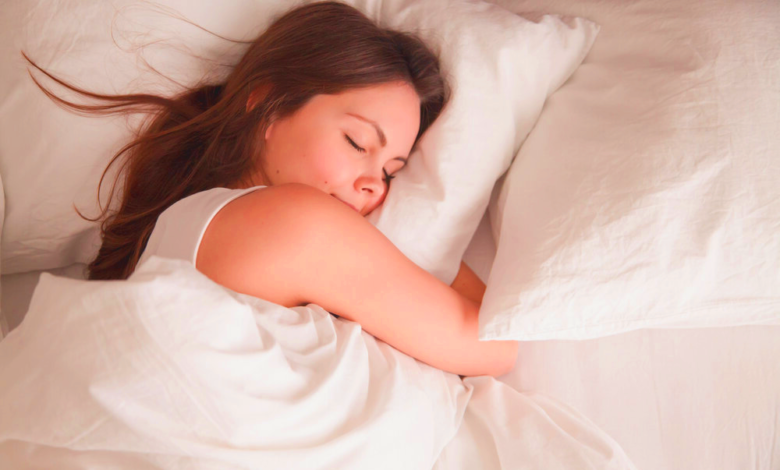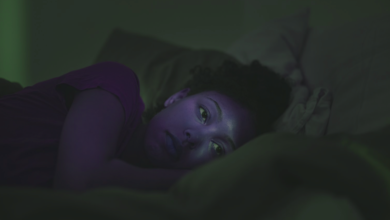Sleep Hygiene 101: Strategies for a Good Night’s Rest

Quality sleep is essential for overall health and well-being. However, in today’s fast-paced world, many people struggle to get the rest they need. Poor sleep habits can lead to a variety of health issues, including fatigue, mood swings, and decreased cognitive function. This article will explore the concept of sleep hygiene 101 and provide strategies to help you improve the quality of your sleep.
Sleep Hygiene 101
Sleep hygiene refers to a set of practices and habits that promote good sleep quality and daytime alertness. It involves creating a conducive environment and adopting behaviors that signal to your body that it’s time to wind down and prepare for sleep.
Read More : 10 Essential Tips for Maintaining a Healthy Weight
Understanding the Importance of Quality Sleep
Quality sleep is vital for physical and mental health. During sleep, the body repairs tissues, consolidates memories, and regulates hormones. Lack of sleep can impair cognitive function, weaken the immune system, and increase the risk of chronic conditions such as obesity and diabetes.
Creating a Sleep-Friendly Environment
One of the first steps in improving sleep hygiene 101 is to create a sleep-friendly environment. This includes:
Setting the Right Temperature
Maintain a comfortable room temperature, typically between 60 to 67 degrees Fahrenheit (15 to 19 degrees Celsius), to promote sleep.
Reducing Noise and Light
Minimize noise and light disturbances in the bedroom by using blackout curtains, earplugs, or white noise machines.
Establishing a Consistent Sleep Schedule
Go to bed and wake up at the same time every day, even on weekends. This helps regulate your body’s internal clock and promotes better sleep quality.
Limiting Screen Time Before Bed
Avoid using electronic devices such as smartphones, tablets, and computers at least an hour before bedtime. The blue light emitted by these devices can interfere with the production of melatonin, a hormone that regulates sleep-wake cycles.
Practicing Relaxation Techniques
Engage in relaxation techniques to calm the mind and body before bed, such as:
Deep Breathing Exercises
Take slow, deep breaths to relax the body and alleviate stress.
Progressive Muscle Relaxation
Tense and then relax each muscle group in the body, starting from your toes and working your way up to your head.
Avoiding Stimulants Before Bed
Limit the consumption of stimulants such as caffeine and nicotine, as they can interfere with sleep.
The Role of Diet in Sleep Hygiene 101
Certain foods can promote sleep, while others can disrupt it. Choose sleep-friendly foods such as:
Foods that Promote Sleep
Include foods rich in tryptophan, magnesium, and calcium, such as turkey, almonds, and dairy products, in your evening meal or snacks.
Foods to Avoid Before Bed
Avoid heavy, spicy, and acidic foods, as well as caffeine and alcohol, close to bedtime, as they can cause indigestion and disrupt sleep.
Regular Exercise for Better Sleep
Engage in regular physical activity, but avoid vigorous exercise close to bedtime, as it can energize the body and make it difficult to fall asleep.
Managing Stress and Anxiety
Practice stress-reduction techniques such as mindfulness meditation, yoga, or journaling to calm the mind and promote relaxation.
Creating a Bedtime Routine
Establish a relaxing bedtime routine to signal to your body that it’s time to wind down. This could include taking a warm bath, reading a book, or listening to soothing music.
The Importance of a Comfortable Mattress and Pillows
Invest in a comfortable mattress and pillows that support your body and promote proper alignment. Replace them regularly to ensure optimal comfort and support.
Dealing with Sleep Disorders
If you suspect you have a sleep disorder such as insomnia or sleep apnea, consult a healthcare professional for diagnosis and treatment options.
Seeking Professional Help
If you’ve tried various sleep hygiene 101 strategies and still struggle with sleep, consider seeking help from a sleep specialist or therapist who can provide personalized recommendations and therapies.
Conclusion: Prioritizing Sleep Hygiene 101 for Overall Well-being
In conclusion, prioritizing sleep hygiene 101 is crucial for overall health and well-being. By implementing the strategies outlined in this article and making sleep a priority in your daily routine, you can improve the quality of your sleep and enjoy the numerous benefits it offers.
Read More : The Impact of Nutrition on Mental Health: A Comprehensive Guide
FAQs (Frequently Asked Questions)
- How many hours of sleep do adults need each night?
- Adults typically need 7-9 hours of sleep per night for optimal health and well-being.
- What are the signs of poor sleep hygiene 101 ?
- Signs of poor sleep hygiene include difficulty falling asleep, waking up frequently during the night, and feeling tired or groggy upon waking.
- Can napping during the day affect nighttime sleep?
- Yes, excessive or long naps during the day can interfere with nighttime sleep, especially if they occur close to bedtime.
- Is it okay to drink alcohol before bed to help with sleep?
- While alcohol may initially make you feel sleepy, it can disrupt the sleep cycle and lead to poorer sleep quality overall.
- How long does it take to establish a new sleep routine?
- It can take several weeks to establish a new sleep routine and for your body to adjust to a consistent sleep schedule.











